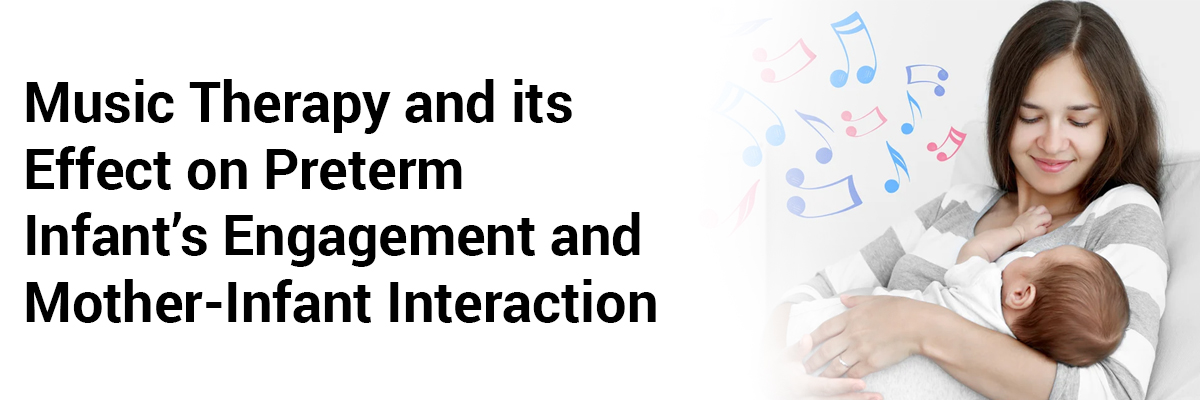
 IJCP Editorial Team
IJCP Editorial Team
Music therapy and its effect on preterm infant’s engagement and mother-infant interaction
Globally, prematurity affects 15 million infants per year and illustrates long-term neurodevelopment, motor, cognitive, linguistic, and socioemotional deficits. Along with the biological risk, long-term separation from the parents, and exposure to stressors in the form of painful procedures, routine nursing interventions in NICU have been associated with reduced development of temporal and parietal lobes in the brain. The long-term separation also poses a risk to parental mental health and parent-infant bonding.
Alertness is a crucial milestone for a newborn in the first week. By the sixth week, alert periods are more consistent allowing faster social interactions. The calm awake state indicated by eye-opening and lack of movements is linked with self-regulatory and observational abilities. However, a calm state is difficult to achieve for a preterm neonate due to poor behavioral development. Similarly, preterm infants may have delayed display of social smiling in comparison to full-term infants. However, it is reported that maternal speech and singing resulted in an increased eye-opening, self-touchbehavior, and enhanced smiling.
A study was conducted to determine the effects of music therapy on the neonate’s signs of engagement such as eye-opening, smiling, and maternal vocalization. The trial included 30 mother-neonate infant pairs in a Brazilian Neonatal Intensive Care Unit. The subjects were divided into two categories i.e., the Music Therapy Group (MTG) and a Comparison Group (CG). The MTG subjects attended six sessions of music therapy to enforce maternal singing with the infants. On analysis, MTG displayed a greater Eye-opening frequency in the initial awake state suggesting that maternal singing can develop an infant’s alertness.
The study highlighted preterm engagement during vocal interactions and maternal singing as crucial factors in Eye-opening and smiling. It also determined the protective nature of early parental vocalization in infants’ neurodevelopment and parent-infant bonding. Family-centered music therapy in the NICU resulted in the development of parental skills and the quality of parent-infant relations. Another study conducted in Brazil concluded that before discharge, the infants tended to look at their mother while singing. However, at home, the neonates touched and smiled more often during vocalization suggesting the benefits of family-centered music therapy in developing mother-infant interaction and relation.
Source: A. Palazzi et al., Infant Behavior and Development, Volume 64,202, https://doi.org/10.1016/j.infbeh.2021.101596.

IJCP Editorial Team
Comprising seasoned professionals and experts from the medical field, the IJCP editorial team is dedicated to delivering timely and accurate content and thriving to provide attention-grabbing information for the readers. What sets them apart are their diverse expertise, spanning academia, research, and clinical practice, and their dedication to upholding the highest standards of quality and integrity. With a wealth of experience and a commitment to excellence, the IJCP editorial team strives to provide valuable perspectives, the latest trends, and in-depth analyses across various medical domains, all in a way that keeps you interested and engaged.




















Please login to comment on this article